
 |
|||||||||||||||||||||||||||||||||||||||
|
|||||||||||||||||||||||||||||||||||||||
The Date of Jesus' Birth |
|||||||||||||||||||||||||||||||||||||||
|---|---|---|---|---|---|---|---|---|---|---|---|---|---|---|---|---|---|---|---|---|---|---|---|---|---|---|---|---|---|---|---|---|---|---|---|---|---|---|---|
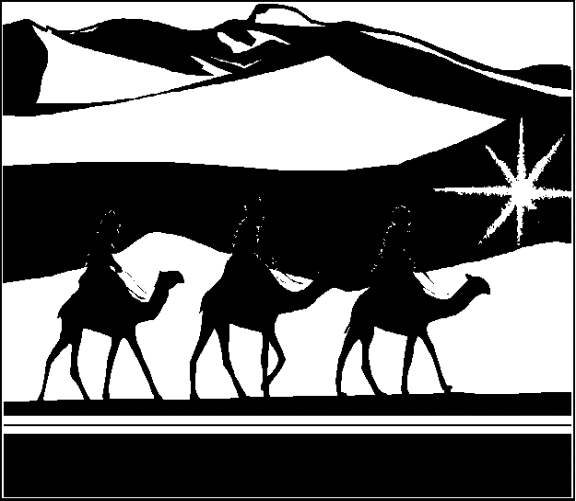 |
|||||||||||||||||||||||||||||||||||||||
Was Jesus born on December 25th? Why do we think that is the case? Does the Bible tell us when our Savior was born? One interesting opinion, held by some, is that the Bible seems to indicate that Jesus was born during the Feast of Tabernacles (feast of Sukkot). Of the seven feasts of Israel, the Feast of Tabernacles is the last of the three fall feasts. The Feast of Tabernacles is celebrated beginning on Tishrei 15, on the Jewish calendar, and is equivalent to a day in September or October in our Gregorian calendar. What facts, if any, can be found in scripture regarding Jesus' birth? In the first chapter of Luke's gospel John the Baptist's foretelling, conception and birth are chronicled. John's father, Zacharias, was a priest that served the Lord in the Temple. Zacharias was a priest of the course or division of Abijah (See Luke 1:5). Israel was divided into twenty-four districts. Each of these districts sent two priests to serve at the temple during different weeks of the year. This procedure was set forth in the Old Testament, by lot, to "govern the sanctuary" (See 1 Chronicles 24). If you read the account in First Chronicles you might wonder why seemingly mundane, useless or even boring information is included in scripture? Who in the world would care which priests served at what time in Israel a few thousand years ago? Read on! The first division of the priests would serve in the first week of the year, which would be both in the month of Nisan and the month of Tishrei since both months in begin the new-year (civil and religious calendar). The second division would serve in the second week of the year, and so on. Nisan is the first month in the religious calendar set up by God (see Exodus 12:2) and Tishrei is the first month of the year according to the civil calendar. See calendar comparison below: |
|||||||||||||||||||||||||||||||||||||||
|
|||||||||||||||||||||||||||||||||||||||
During the third week in the month of Nisan, the Feast of Passover was celebrated. During this time, as well as during the Feast of Pentecost and the Feast of Tabernacles, the priests from all twenty-four districts would come to the temple to serve together. During these three feasts (Passover, Pentecost and Tabernacles) all males were required to go to Jerusalem as ordered by God (see Deuteronomy 16:16). This arrangement allowed a sharing of duties, with all the priests participating, when the surrounding population increased massively. Thus it is seen that each and every course of the priests had a total service requirement consisting of duties during Passover, Pentecost and Tabernacles along with their set weeks, served in turn twice a year. In 1Chronicles 24, we see that Abijah was the eighth division or course of priests. The particular course of Abijah, along with all the others, would serve in the temple twice a year, once in the first half of the year and once in the second half of the year. Abijah's first course (more on his second course later) would therefore serve during the tenth week of the year. Why did that group (the family of Abijah, in this case Zacharias) serve during the tenth week instead of the eighth week? Remember, the weeks of Passover and Pentecost, which occurred before the course of Abijah had served its turn in the sanctuary, would not be counted because all the priests were required to go to Jerusalem then. In Luke's account we see that Zacharias is serving his term and is burning incense at the Alter of Incense, in the Holy place, in the temple. Eighteen prayers are prayed while the incense, which represents the prayers of God's people, (see Psalm 141:2 and Revelation 8:3-4) is being burned, by Zacharias in this case. These eighteen prayers would be prayed every day in the temple. One of these prayers is that Elijah would come. This is significant because the people understood that, as God had documented, Elijah would precede the coming of the Messiah (see Malachi 4:5). |
|||||||||||||||||||||||||||||||||||||||
 |
|||||||||||||||||||||||||||||||||||||||
These eighteen special prayers would be prayed twice a day, once in the morning and once in the afternoon. An angel appeared to Zacharias on the right side of the altar and told him that his prayer was heard and John the Baptist would be born. John the Baptist was not literally Elijah, but was of the spirit of power of Elijah (see Luke 1:17). After Zacharias completed his turn at serving in the temple he went home and his wife Elisabeth subsequently became pregnant with John the Baptist. Allowing two weeks for the laws of separation, with regard to female reproductive cycles, that God commanded in the Old Testament and then going forward nine months puts the birth of John the Baptist during the feast of Passover. A very intriguing fact is that during the service for Passover while eating a meal, which is called the Passover Seder, the people go to the door during one part of the service and look for Elijah while the Passover meal is eaten. The cup or toast involved in this ritual is called the cup of Elijah. Is this a coincidence? John the Baptist, conceived after prayer by his parents (for the coming of Elijah and subsequently the Messiah, Jesus) born on Passover, preceding Jesus in birth and service and born of the spirit of power of Elijah, is symbolized in the feast that is occurring when he his born. GOD causes events to occur in miraculous ways! Meanwhile, during the sixth month of Elisabeth's pregnancy with John the Baptist, the angel Gabriel appeared to Mary. Using the dates and logic from above, this visitation would have occurred around the twenty-fifth of the month of Kislev, otherwise known as Chanukah (Feast of Dedication). During the time of the first century, Chanukah was known as the second feast of Tabernacles. During the time of Chanukah, the entire feast of tabernacles prayers are prayed once again. Mary's dialogue with the angel Gabriel is found in the Feast of Tabernacles liturgy today. Calculating from the twenty-fifth of Kislev and adding eight days for the festival of Chanukah plus nine months for Mary's pregnancy, this will bring you to the time of the feast of Tabernacles, or Tishrei 15, the beginning of the feast. Interestingly a couple of idioms associated with the Feast of Tabernacles are "the season of our joy" and "the feast of the nations". What did the angel say when announcing Jesus' birth?
Were these words carefully selected and spoken, or just uttered as a result of an angel's will, or maybe it's just a coincidence? You decide, but the terminology the angel used to announce the birth of Jesus was spoken using themes and messages associated with the Feast of Tabernacles. At the close of the first day of the Feast of Tabernacles worshippers descended to the Court of Women, at the temple. Four mammoth golden candlesticks, us usual for this feast, had been positioned in that court. Each candlestick was fashioned so that four golden bowls, with a capacity of about seven and a half gallons each, were positioned at the topmost part. Resting against the candlesticks were four ladders, which youths of priestly pedigree climbed to fill the bowls. Old or worn out leggings and girdles of the priests were used as wicks for the bowls on the candlesticks. The light produced from these sixteen bowls of oil were bright enough that Jerusalem could be seen for quite a distance and no courtyard within Jerusalem was not lit up from the candlesticks. Members of the Sanhedrin and others would dance well into the night, holding bright torches and singing praises to GOD. Imagine the sight of it! It has been noted that swaddling clothes used for infants, were made, at times, from legging material. Jesus was wrapped in swaddling cloths. Jesus is the light of the world. At his birth a woman (his mother) enwrapped him in the very element that enabled light to emanate form the Court of Women to Jerusalem and the countryside beyond. Another series of coincidences. no doubt! The infant Jesus was laid in a manger. The word manger is the Greek word phatn'e. It is the same word translated as "stall" (see Luke 13:15). By seeing how the word is used in Luke 13:15, it can be seen that the Greek word phatn'e means a place for hitching cattle. The Hebrew word for stall is marbek (see Amos 6:4 and Malachi 4:2). In Genesis an account of Jacob is given as he journeyed to Sukkoth and made booths (see Genesis 33:17). The word booth in this passage is the Hebrew word sukkah; the plural is sukkot for his cattle. So we can see from these passages how the word booth (sukkah or sukkot) was used by Jacob for his cattle in Genesis, and how the Greek word for manger or "stall," phatn'e, was also used to refer to hitching cattle in Luke's Gospel. The month of Tishri (in the fall) also fits with the season of shepherds being out with their flocks by night, as they were when Jesus was born; during winter the lambs are kept indoors. As previously mentioned, during the Feast of Tabernacles, GOD required that all male Jews come to Jerusalem. For this reason, the city would be overcrowded with people and would explain why Mary and Joseph could not find lodging in and around Jerusalem (see Luke 2:7). Bethlehem, the place where Jesus was born, is only about four miles from Jerusalem. The last evidence for the birth of Jesus during the feast of Tabernacles is seen according to the Scriptures is in Matthew's gospel (see Matthew 2:1). There we see that wise men come from the East to visit Jesus. The land of the East (see Genesis 29:1 and Judges 6:3) is Babylon (Iraq today), where the largest Jewish population was at the time of the birth of Jesus. These Jews were descendants from the captivity when King Nebuchadnezzar defeated Israel and took the Jews to Babylon to serve him. The wise men were rabbis. The rabbis, also called sages, are known in Hebrew as chakamim, which means wise men. The word in Matthew 2:1 in Greek is magos, which is translated into English as "Magi." Magos in Greek is the Hebrew word ravmag. Ravmag comes from the Hebrew word rav, which means "rabbi." It should also be noted that the Greek word magos can also mean scientist, counselor, scholar, or teacher. The rabbis were scholars or teachers of the Jewish law. |
|||||||||||||||||||||||||||||||||||||||
 |
|||||||||||||||||||||||||||||||||||||||
Jesus was also referred to as "Rabbi," or "Teacher" (see John 1:38,47,49; 3:2). So, we can see that the wise men were Jewish rabbis coming from Babylon to witness the birth of Jesus. One of the requirements during the time of Sukkot was to build an outside temporary shelter and live in it during this festival season. This shelter is called a booth, or sukkah. The sukkah had to be built with an opening in the roof so the people could see the stars in heaven. This is another reason for why the rabbis would be looking for, and thus seeing, the star in the sky when it appeared |
|||||||||||||||||||||||||||||||||||||||
 |
|||||||||||||||||||||||||||||||||||||||
In addition, there was a prophecy in Numbers in the Old Testament.
The rabbis saw the star from the East. Salvation was seen, from a Jewish perspective as coming from the East. Jesus descended from the tribe of Judah. The tribe of Judah was always positioned on the east side of the tabernacle when Moses and the Israelites camped in the wilderness. Did all these things come to be by chance or coincidence? Finally, King Herod inquired about where the Messiah would be born (see Matthew 2:4). He was told in Bethlehem, based upon the prophecy in the book of Micah.
Herod arranged to have all the children two and under in Bethlehem violently murdered (see Matthew 2:7-8, 16). He knew the Messiah was coming but the fact that he killed children in such a wide range indicates that he did not know quite when the Messiah had been born. Mary and Joseph fled to Egypt until they heard Herod was dead. They were back in Bethlehem in time to perform Mary's purification and Jesus' dedication on the 40th day after His birth (see Luke 2:22-38). By this time Herod had to be dead or they could not have come to the Temple in Jerusalem (see Matthew 2:19-23). Herod had to have died during the 40 days between Jesus' birth, and his dedication 40 days later. Herod is known to have died in September of 4 B.C. So Jesus had to have born in the fall of the year. This fact, by the way, rules out that Zecharias could have been serving during Abijah's second course of the year when his meeting with the angel occurred, since that would place Jesus' birth in the spring of the year and not allow for Herod's death during the 40 days after his birth in the fall. This also tells us that the year of Jesus' birth was 4 B.C. Whew!! Finally!! If the above logic is correct Jesus was born on Tishri 15, 4 B.C. The above scenario is interesting and logical, but not the only one in existence. For instance, there are many arguments regarding the history of Herod, particularly, when he actually died. That particular study is fascinating but left to the reader to pursue. Whether or not Jesus was born on this particular day or some other day, while it might be thought provoking, is not nearly as important as what you do with that same Jesus, this day, today. Meditate on the scriptures involved with the birth of our LORD and study all the interesting symbolism, allegories and historical facts associated with His birth and decide what you, personally, will do with the Savior that came to earth in such a humble manner, so many years ago. He came to save your skin and your soul. He was born in a manger long ago so He could die...for you. Be blessed and meditate or meditate and be blessed!!!!.. The choice is yours!! |
|||||||||||||||||||||||||||||||||||||||
Acknowledgements: Edershiem, Alfred, (1825-1889) "The Temple-Its Ministry and Services" Chumney, Eddie, "The Seven Festivals of the Messiah" Ratcliff, Brenda, "Celebrating Our Jewish Roots" Hebraic Heritage Ministries International http://www.hebroots.com/ |
|||||||||||||||||||||||||||||||||||||||
 |
|||||||||||||||||||||||||||||||||||||||
|
|||||||||||||||||||||||||||||||||||||||
Are we Living in the Last Days...End Times? See Breaking News |
 |
| __________________________ |
 |
__________________________ |
| __________________________ |
As You Study the Biblical Last Days in the News... Discover the Bible as Well |
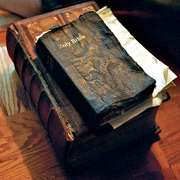 |
| __________________________ |
 |
| __________________________ |
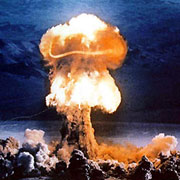 |
| __________________________ |
To Know God's Word Read Scripture |
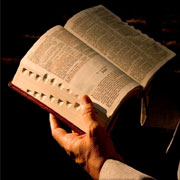 |
_________________________ |
To Read God's Word Your Reading Schedule |
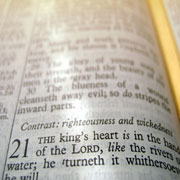 |
_________________________ |
 |
| __________________________ |
Thought Provoking Articles for Your Meditation |
 |
_________________________ |
NuggetNetReview.com Influences Others for the Gospel in These Countries Worldwide |
 |
AFGHANISTAN |
ALBANIA |
ALGERIA |
ANGOLA |
ANTIGUA AND BARBUDA |
ARGENTINA |
ARMENIA |
ARUBA |
AUSTRALIA |
AUSTRIA |
AZERBAIJAN |
BAHAMAS |
BAHRAIN |
BANGLADESH |
BARBADOS |
BELARUS |
BELGIUM |
BELIZE |
BERMUDA |
BHUTAN |
BOLIVIA |
BOSNIA AND HERZEGOVINA |
BOTSWANA |
BRAZIL |
BRUNEI DARUSSALAM |
BULGARIA |
CAMBODIA |
CAMEROON |
CANADA |
CAYMAN ISLANDS |
CHAD |
CHILE |
CHINA |
COLOMBIA |
CONGO |
COSTA RICA |
COTE D'IVOIRE |
CROATIA |
CYPRUS |
CZECH REPUBLIC |
DENMARK |
DOMINICA |
DOMINICAN REPUBLIC |
ECUADOR |
EGYPT |
EL SALVADOR |
ESTONIA |
ETHIOPIA |
FAROE ISLANDS |
FIJI |
FINLAND |
FRANCE |
GAMBIA |
GEORGIA |
GERMANY |
GHANA |
GIBRALTAR |
GREECE |
GREENLAND |
GRENADA |
GUAM |
GUADELOUPE |
GUATEMALA |
GUYANA |
HAITI |
HONDURAS |
HONG KONG |
HUNGARY |
ICELAND |
INDIA |
INDONESIA |
IRAN, ISLAMIC REPUBLIC |
IRAQ |
IRELAND |
ISRAEL |
ITALY |
JAMAICA |
JAPAN |
JORDAN |
JERSEY |
KAZAKHSTAN |
KENYA |
KOREA, REPUBLIC OF |
KUWAIT |
KYRGYZSTAN |
LAO PEOPLE'S DEMOCRATIC REPUBLIC |
LATVIA |
LEBANON |
LESOTHO |
LIBERIA |
LIBYAN ARAB JAMAHIRIYA |
LITHUANIA |
LUXEMBOURG |
MACEDONIA, THE FORMER YUGOSLAV REPUBLIC OF |
MALAWI |
MALAYSIA |
MALDIVES |
MALTA |
MALI |
MARSHALL ISLANDS |
MAURITANIA |
MAURITIUS |
MEXICO |
MOLDOVA, REPUBLIC OF |
MONACO |
MONGOLIA |
MONTENEGRO |
MONTSERRAT |
MOROCCO |
MOZAMBIQUE |
MYANMAR |
NAMIBIA |
NAURU |
NEPAL |
NETHERLANDS |
NETHERLANDS ANTILLES |
NEW ZEALAND |
NICARAGUA |
NIGERIA |
NORWAY |
OMAN |
PAKISTAN |
PANAMA |
PAPUA NEW GUINEA |
PARAGUAY |
PERU |
PHILIPPINES |
POLAND |
PORTUGAL |
PUERTO RICO |
QATAR |
RWANDA |
ROMANIA |
RUSSIAN FEDERATION |
SAINT KITTS AND NEVIS |
SAINT LUCIA |
SAINT VINCENT AND THE GRENADINES |
SAMOA |
SAUDI ARABIA |
SENEGAL |
SERBIA |
SERBIA AND MONTENEGRO |
SIERRA LEONE |
SINGAPORE |
SLOVAKIA |
SLOVENIA |
SOLOMON ISLANDS |
SOMALIA |
SOUTH AFRICA |
SPAIN |
SRI LANKA |
SURINAME |
SWAZILAND |
SWEDEN |
SWITZERLAND |
SYRIAN ARAB REPUBLIC |
TAIWAN |
TANZANIA, UNITED REPUBLIC OF |
THAILAND |
TRINIDAD AND TOBAGO |
TOGO |
TUNISIA |
TURKEY |
TURKS AND CAICOS ISLANDS |
UGANDA |
UKRAINE |
UNITED ARAB EMIRATES |
UNITED KINGDOM |
UNITED STATES |
URUGUAY |
UZBEKISTAN |
VANUATU |
VENEZUELA |
VIET NAM |
VIRGIN ISLANDS, BRITISH |
VIRGIN ISLANDS, U.S. |
YEMEN |
ZAMBIA |
ZIMBABWE |